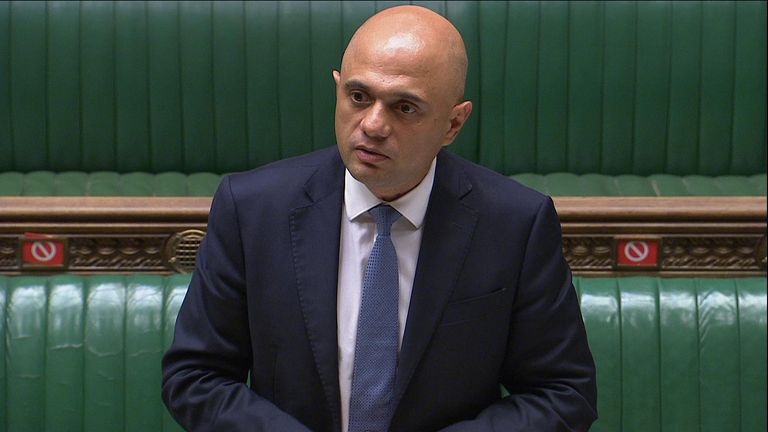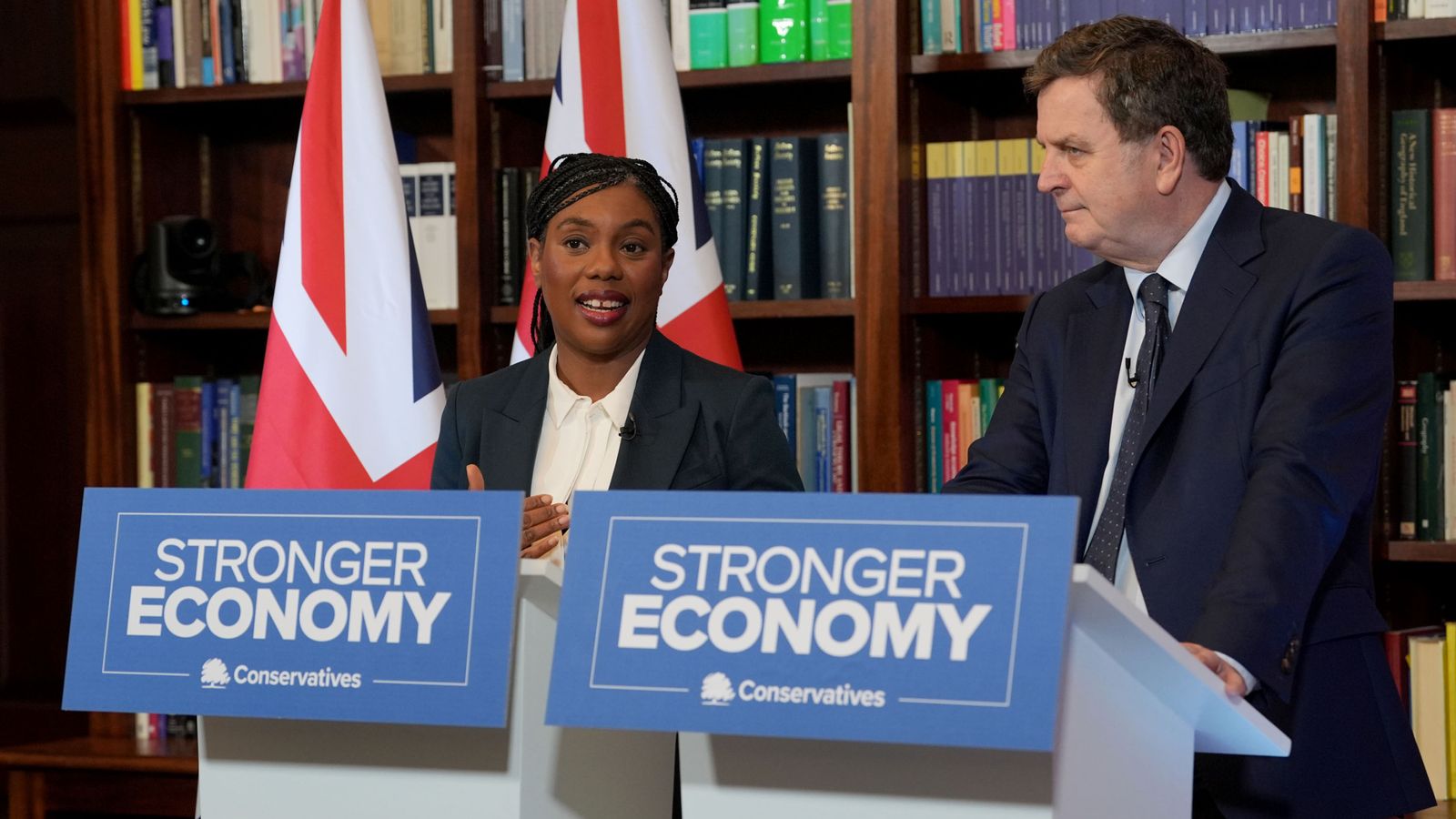The ending of most legal coronavirus restrictions in England next week “should not be taken as an invitation by everybody simply to have a great jubilee and freedom from any kind of caution or restraint”, the prime minister has said.
Speaking at a Downing Street news conference, Boris Johnson said it is “absolutely vital that we proceed now with caution” as COVID-19 restrictions are lifted on 19 July.
Live COVID updates from the UK and around the world
“I cannot say this powerfully or emphatically enough: this pandemic is not over.”
The PM said that from next Monday “we cannot simply revert instantly to life as it was before COVID”, as he stressed the need for “constant vigilance” and “thinking about others as well as yourself”.
Speaking after Health Secretary Sajid Javid confirmed in the Commons that step four of England’s roadmap out of restrictions will go ahead next Monday, Mr Johnson expressed his “hope” that the plan will be “irreversible”.
But he did not rule out introducing measures again, saying: “If we are seeing very exceptional circumstances, the arrival of a new variant that we haven’t bargained for, budgeted for, that really is causing us a real problem, then obviously we must rule nothing out.”
A review will take place in September to assess the country’s preparedness for autumn and winter.
Latest government data shows the UK has reported 34,471 new cases and six more coronavirus-related deaths in the latest 24-hour period.
It is the sixth day in a row where total cases have been more than 30,000.
Follow the Daily podcast on Apple Podcasts, Google Podcasts, Spotify, Spreaker
The PM’s remarks come as it was revealed government scientists believe between 1,000 and 2,000 COVID patients a day could be admitted to hospital in England at the peak of the third wave and there may be 100 to 200 daily deaths.
But the health secretary told the Commons that based on the evidence before him, he did not “believe that infection rates will put unsustainable pressure on the NHS”.
This was due to the “severely weakened” link between cases, hospitalisations and deaths as a result of the vaccine rollout, he added.
Mr Johnson said the current wave – which modelling shows is not expected before mid-August – would mean more hospital admissions and deaths, but he said: “We’ve come to a stage in the pandemic when there is no easy answer and no obvious date for unlocking.”
The PM said delaying step four – to September or later – would mean relaxing restrictions “as the weather gets colder and as the virus acquires a greater natural advantage and when schools are back”.
He added: “So we think now is the right moment to proceed, when we have the natural firebreak of the school holidays in the next few days.”
Step four will see social distancing rules and limits on social contact removed across the country.
All remaining businesses that have been closed during the pandemic, such as nightclubs, will be allowed to reopen.
The legal requirement to wear face masks on public transport and in shops will also be lifted.
But despite this, the government is recommending that people keep wearing them in crowded places such as on trains, trams and buses – but not venues such as nightclubs.
In addition, businesses and large event organisers will be encouraged to use so-called “COVID passports” – proof of double vaccination, negative test or recovery from coronavirus via the NHS app – in “high-risk” settings in order to limit the spread of infections in their venues.
Their use will be voluntary at first, but the government could consider making it mandatory in certain venues in the future if cases continue to rise.
This appears to mark a change in approach from last week – and is likely to spark a backlash as the idea has proven controversial.
Mr Johnson said nightclubs and other venues with crowds should use vaccine passports for entry “as a matter of social responsibility”.
A range of guidance will be issued in the coming days which will set out what is expected of companies post-19 July.











